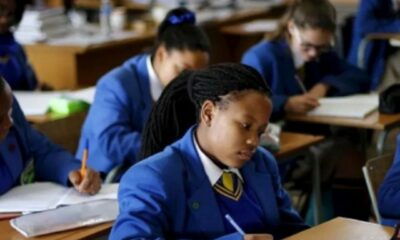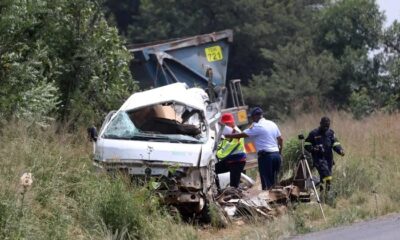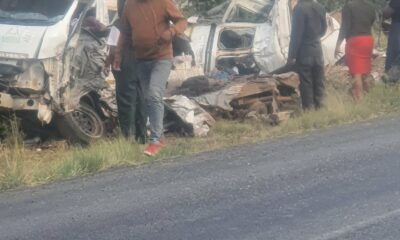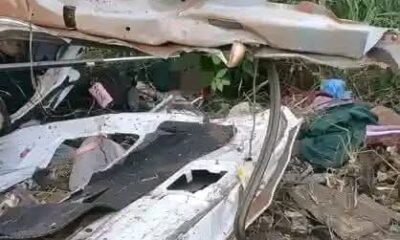News
R68 Billion and Still Not Enough: Why Gauteng’s Education Budget Falls Short

A budget that promises transformation, but experts warn it won’t even cover the cracks.
The Gauteng Department of Education (GDE) unveiled a R68 billion budget for the 2025/26 financial year, its largest ever. The figure was announced with optimism, positioned as a tool to shape a more skilled, confident, and future-ready generation.
But behind the polished speeches and headline figures lies a sobering truth: the numbers simply don’t add up to the needs.
The Ambitious Goals Behind the Budget
Standing at Jeppe Girls High School on July 20, Gauteng Education MEC Matome Chiloane described the budget as a turning point. His department, he said, aims to expand early childhood development, fix deteriorating school infrastructure, support learners through nutrition and transport, and roll out universal Grade R.
The department also highlighted its Strategic Framework for Educational Excellence, which includes psychosocial support, teacher development, and safer schools.
On the surface, it sounds promising. But education experts and civil society organisations are reading between the budget lines and what they see is cause for concern.
Not All Increases Are Equal
According to Daniel Peter Al-Naddaf of the Equal Education Law Centre (EELC), the budget increase looks better on paper than it does in practice. While the department claims a 4.9% rise from last year’s budget, this is only when compared to the initial allocation, not actual spending. In reality, the increase is closer to 2.8%, which doesn’t keep pace with inflation or the explosive growth in learner numbers.
“Learners will receive less in real terms,” Al-Naddaf warned. “This isn’t the kind of increase we need to recover from years of austerity.”
It’s a sentiment echoed by Matshidiso Lencoasa from SECTION27, who pointed out that while provincial budgets get far less attention than national ones, they’re the real engines of education in South Africa. “Most education happens at the provincial level,” she said, urging communities to engage critically with local education finances.
Stretching Too Thin: Infrastructure, Staff, and Inequality
Gauteng’s schools are buckling under pressure. The province faces one of the fastest-growing learner populations in the country. That means more classrooms, more teachers, more textbooks—and more money.
Yet, overcrowded schools, crumbling infrastructure, and unfilled teaching posts continue to plague the system. Lencoasa noted that the new budget largely accounts for rising operational costs, not meaningful improvements. “It’s not enough to fix the system,” she said.
Al-Naddaf flagged another serious concern: a planned 8.3% cut in goods and services over the next three years. This directly impacts key support areas like:
-
Learner transport
-
School nutrition
-
ICT and inclusive education
-
Teaching materials and stationery
“These are not luxuries,” he said. “They’re essential, especially in Gauteng where inequalities are severe.”
Grade R: A Right Without the Resources
The budget includes R734 million to support Grade R access and expand ECD programmes. But experts say this falls dramatically short of what’s required for universal Grade R, which has been compulsory since January 2024.
Al-Naddaf called the R2.6 billion earmarked for ECD across Gauteng “encouraging but inadequate,” especially given that it’s less than 4% of the total education budget. He noted that National Treasury’s R10 billion ECD fund is only for subsidies—not infrastructure or teacher salaries.
Lencoasa also cautioned that formal registration and quality assurance of ECD centres remain underfunded. “We risk creating a two-tier system where better-resourced children thrive while others are left behind,” she said.
Underspending, Inefficiency and a Lack of Accountability
Even more troubling is the persistent problem of underspending. Despite growing need, funds are often returned to Treasury or spent irregularly. The school nutrition programme, for instance, regularly faces delays and shutdowns due to tender issues.
“There’s a culture of no consequence,” said Lencoasa. “Mismanagement is flagged, but those responsible aren’t held to account.”
She called for naming and shaming officials, backed by real enforcement. Without it, she warned, service delivery will continue to falter—no matter how big the budget gets.
Where Could the Money Come From?
To close the funding gap, experts like Lencoasa are calling for bolder fiscal reforms. She pointed to uncollected taxes, inefficient corporate tax incentives, and untapped wealth taxes like inheritance and luxury levies as untapped revenue streams.
“We don’t have to raise VAT to fund education,” she said. “But we do need the political will to redistribute resources more fairly.”
She added that provinces like Gauteng, South Africa’s economic heartland, have a responsibility to lead in both innovation and accountability.
A Budget Full of Promise, But Not Progress
At R68 billion, the Gauteng education budget is the biggest it’s ever been. But for many in the province, that number feels symbolic rather than substantial. The real test isn’t in what’s promised, but in what’s delivered.
And if recent history is any guide, learners, especially the poorest among them, may still be left waiting—for teachers, classrooms, meals, and the basic dignity of a proper education.
{Source: Daily Maverick}
Follow Joburg ETC on Facebook, Twitter , TikTok and Instagram
For more News in Johannesburg, visit joburgetc.com



























